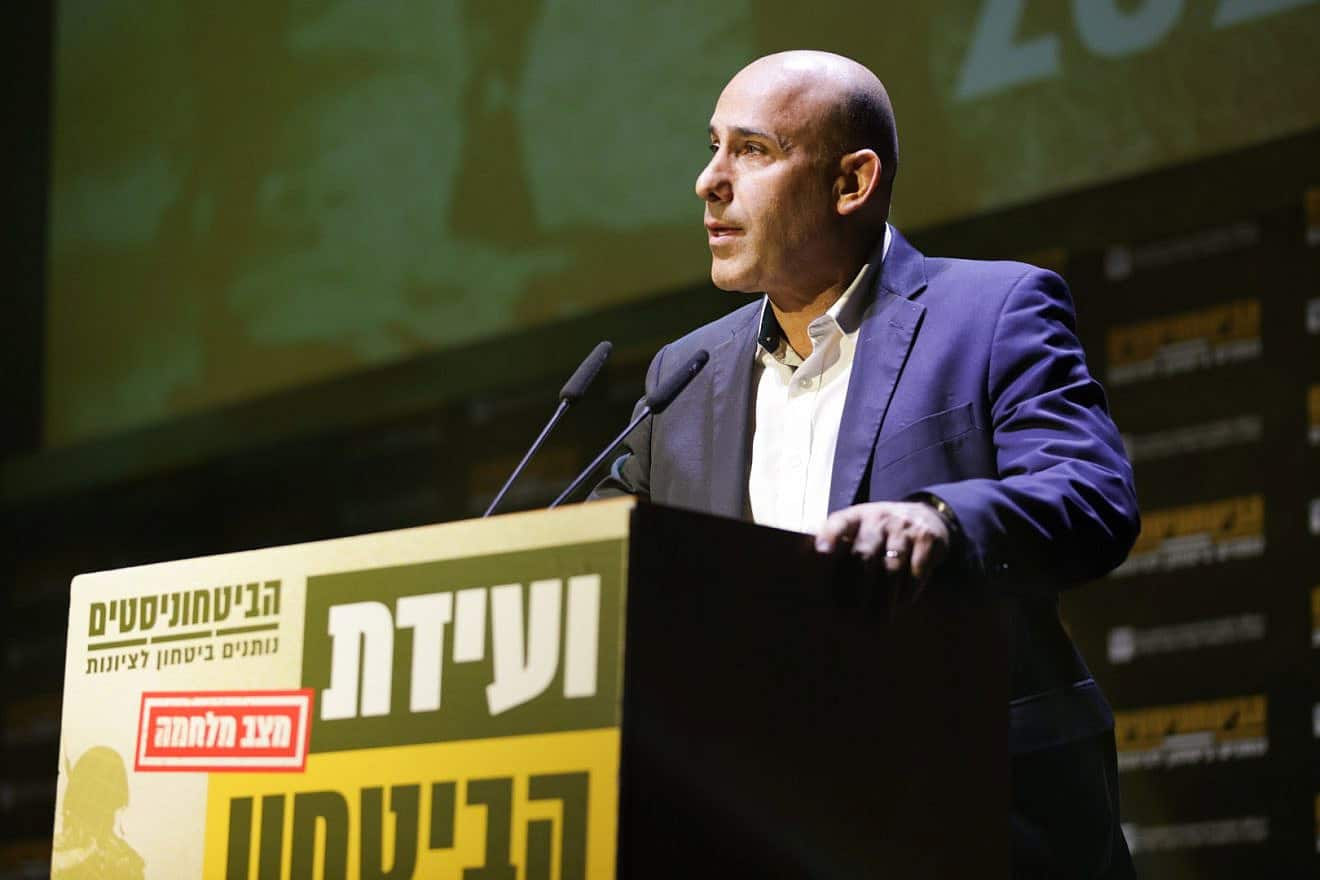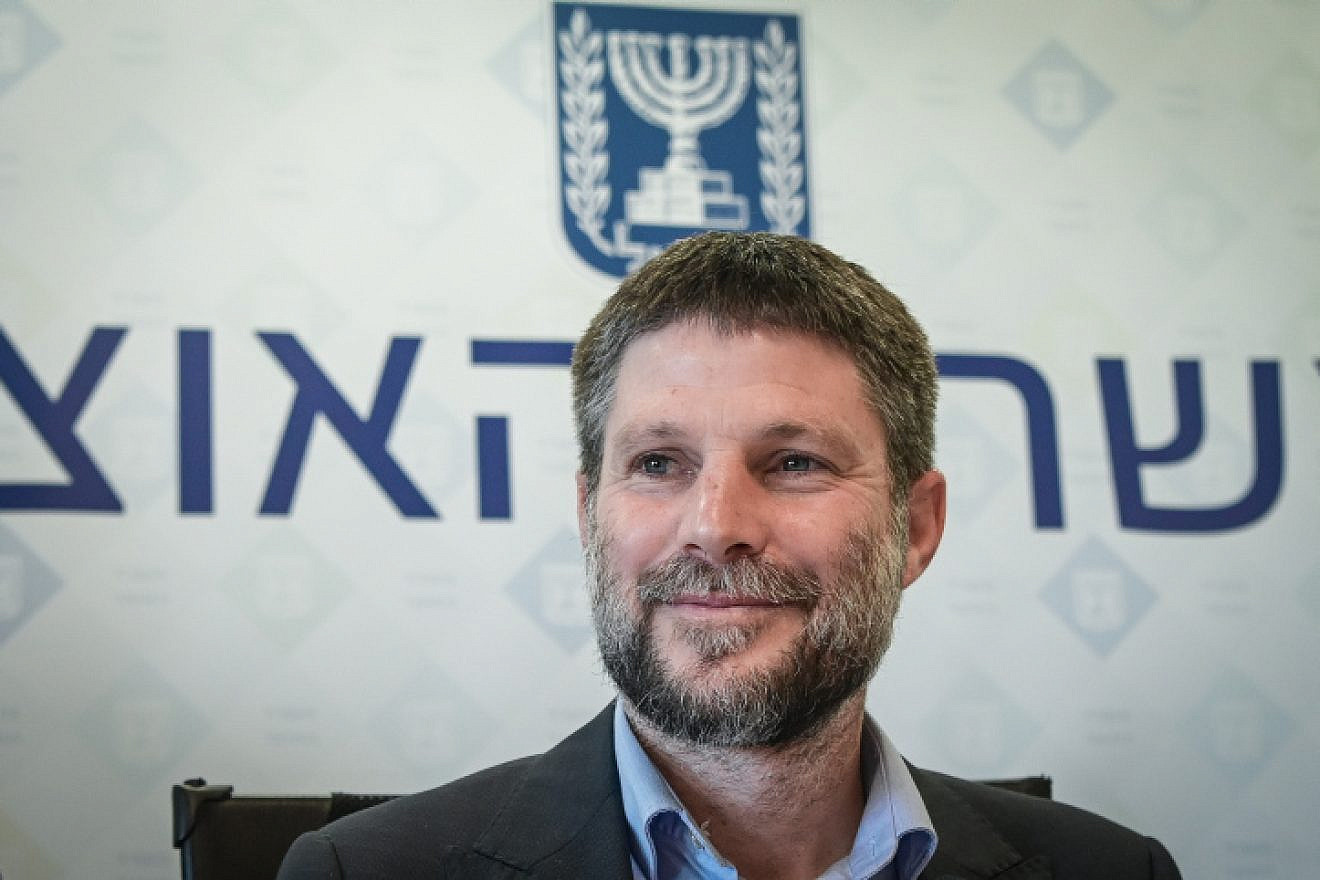Israeli Defense Conference paints ‘day after’ scenario with Israel firmly in control of Gaza
Israel must have security control in Gaza and a firm hand in civilian affairs there too, according to conference participants.

While the world pressures Israel, even before its war against Hamas has ended, to turn the Gaza Strip over to the Palestinian Authority, Israeli security experts delivered the opposite message at a security conference Thursday, saying Israel must remain in Gaza for a long time.
The Israel Defense Conference 2024, which took place in Ashkelon on Jan. 25, was organized by the Israel Defense and Security Forum (IDSF). Thursday’s conference was the third held by the organization, and the most successful, with 500 attending.
The IDSF has grown in reputation following Oct. 7 as it has been warning for years that Israel needs to reevaluate its security posture. The group, comprising thousands of former security officers, was founded in 2020 by senior retired IDF personnel concerned that Israel was entering a dangerous period.
“For two years now, we have warned that the State of Israel has been on the road to war,” said Israel Defense Forces Brig. Gen. (res.) Amir Avivi, co-founder and chairman of IDSF, in his opening remarks.
“We predicted that Israel was going to face a Six-Day War scenario, or a Yom Kippur scenario, in which we would find ourselves completely surprised.”
In the 1967 SixDay War Israel struck first, quickly defeating its enemies. In the 1973 Yom Kippur War Israel was taken by surprise, hesitated to carry out a last-minute preemptive strike, and suffered heavy losses.
“Unfortunately, we found ourselves in the Yom Kippur reality that we so feared, a surprise scenario that caught Israel off guard,” he said, referring to the Oct. 7, 2023 Hamas invasion.
A central topic at the conference was the “day after” the current war. While the United States and Europe have reiterated their commitment to the two-state solution, the creation of a Palestinian state next to Israel, Israelis have drawn the opposite conclusion from Oct. 7.
The United States and Europe “are really calling for Israel to destroy itself,” Avivi told JNS.
“When we talk about the ‘day after’ we need to look at it from two points of view,” he said. “One is military. The other is civilian.”
On the security front, Avivi highlighted three issues: First, Israel must control the Egyptian border “indefinitely,” he said, to prevent the flow of weapons, terrorists and money into the Gaza Strip. Second, the IDF must be able to operate anywhere in Gaza, “just like it can anywhere in Judea and Samaria.” Third, Israel needs a security perimeter to give the IDF time to act against terrorists attempting to infiltrate into Israel.
In civilian affairs, “no one but Israel” can ensure the denazification of Gaza’s population, which has been marinated in antisemitism, Avivi said, adding that the United Arab Emirates and Saudi Arabia may also have a role, as they have experience dealing with this with their own populations.
In a panel focusing on the day after Hamas, former Knesset member Ruth Wasserman Lande focused on the need to overhaul Gaza’s education system. Once the army has done its work, Israel faces “an indoctrinated population” brainwashed in mosques, camps and schools, she said. The P.A. can’t be a part of the solution, as it too incites to violence, she added.
Another panelist, Lt. Col. (res) Maurice Hirsch, director of the Initiative for Palestinian Authority Accountability and Reform in the Jerusalem Center for Public Affairs (JCPA), seconded this. He noted that the Hamas terrorists on Oct. 7 went through a P.A.-controlled educational system.
Wasserman Lande said that the United Nations Relief and Works Agency for Palestine Refugees in the Near East, too, must go. “UNRWA needs to be dismantled,” she said.
The U.N. agency’s major donors, including the United States and United Kingdom, have halted funding to it over accusations that staffers participated in Hamas’s Oct. 7 massacre. Wasserman Lande said western countries should take charge of the re-education effort, in a process that may take many years.
The conference also devoted a panel to Iran.
IDF Brig. Gen. (res.) Yossi Kuperwasser, senior fellow of the Jerusalem Center for Public Affairs (JCPA), an Israeli think tank, said that the United States and Europe mistakenly believe that the Israeli-Palestinian conflict is the main issue. “They don’t understand that the head of the snake is Iran,” he said, describing the Gaza war as largely a war between the two axis powers, with the United States and Europe on one side and Russia, China and Iran on the other.
“If we’re able to defeat Hamas in Gaza, we’ll be able to change the entire swing of the pendulum of Iranian power against us. We’ll move the pendulum in the opposite direction and weaken the Iran axis,” Kuperwasser said.
To push back on Iran, American cooperation is critical, he added. “We’re not only fighting our own war, but also a much greater war for the future of us all,” he said.
“We have to show [the United States and the West] that it’s in their interest to smash the Iranian octopus,” agreed panelist Itai Medina, a member of both JCPA and IDSF.
Throwing some light on U.S. reluctance to confront Iran, he explained that from the American point of view the main enemy is Sunni Islamists. “[Osama] Bin Laden, Abu Bakr [the self-declared caliph of the Islamic State] and others, they’re all radical Sunnis and enemies of Iran, the Shi’ites and the West,” he said.
The Iranians fought against the Sunnis, he noted, clarifying that it wasn’t the Iranians themselves, who are infamous for their use of proxy forces. Obama administration officials, however, viewed Iranian-backed Shi’ite militias as “boots on the ground” in their fight against Islamic State.
Medina said there are hopeful signs of change in American attitudes, largely due to two strategic mistakes by Iran. First, it joined Russia against Ukraine, placing itself squarely within the Russia-China axis. Second, it approved Houthi attacks on international shipping, something that threatens the world’s economy.
“Those are two areas where Iran plays with fire against the West because they touch on American interests,” said Medina.
Israeli Finance Minister Bezalel Smotrich focused on Qatar, which has been in the news after Hebrew media played a leaked recording on Jan. 23 of Israeli Prime Minister Benjamin Netanyahu criticizing Qatar’s role as a key negotiator in hostage talks as “problematic” due to its closeness with Hamas.

Smotrich said Qatar, which hosts senior Hamas leaders, is “playing a double game…Qatar has an interest to preserve Hamas, to ensure its survival in Gaza and outside [Gaza] on the ‘day after,’ and it’s doing everything to weaken our efforts,” he said. “Qatar is working with Hamas.”
Smotrich called for U.S. and Western pressure on Qatar, saying such pressure would result in the immediate release of the remaining hostages held by Hamas.
Smotrich promised: “Qatar won’t have a role in the Gaza Strip on the day after Hamas. Period.”
The conference stressed the importance of Israeli societal strength in emerging victorious in this and future conflicts. “Israeli society in the end is the key to everything. It all starts from our unity and our resilience as a society,” said Avivi.
Despite the tragic shadow cast by Oct. 7, the conference managed at times to be emotionally uplifting. The most moving talk was given by Iris Haim, a nurse, whose son Yotam was one of three kidnapped Israelis who managed to escape their Hamas captors, only to be gunned down in a case of mistaken identity by IDF soldiers.
Iris Haim, whose son Yotam was one of three hostages mistakenly shot dead by the IDF in Gaza, gave the most moving talk at the conference.
Iris described how two weeks after the war’s start, she posted a video, which went viral, in which she told mothers of soldiers that “I, as a mother of a hostage, am no more important than the mother of a soldier who’s going to fight in Gaza. The [soldiers’] mothers and I are exactly the same. My son, who was abducted from his home as a civilian, is a soldier of the State of Israel.”
Iris said her experience had opened doors to Israelis from different walks of life. She described meeting an ultra-Orthodox woman whose son was killed just opposite her son’s home while defending his community. As a former kibbutznik from Haifa, Iris said she had no familiarity with the Jewish religion. Indeed, “I was made to feel afraid of it,” she said, but the emotional meeting “strengthened for me that we’re one people, one heart.”
She spoke of the importance of the choice of words she used to help her in her worst hours. When her son Yotam was captive, she refused to believe he was held in a dark tunnel, as so many insisted. She chose to believe “he was in the light.” This later proved to be the case; she would later learn her son Yotam had not been held in the tunnels.
She also refused to say, “My heart is in Gaza,” or wear square dog tags in solidarity with the hostages, some of which were inscribed with the words, “Our hearts are held hostage in Gaza.”
“I have possession of my heart,” she said, noting that they had her son, but “I was not also prepared for Hamas to abduct my heart.”
“Herein lies my strength. To say I will not bow down to Hamas. Because that’s what Hamas is trying to do. And it’s the fourth wave of terrorism, psychological terror, against the home front, against those of us here,” she explained.
Iris said she wasn’t angry at the soldiers who killed Yotam, describing them as “our children.” When the soldiers were criticized, she rushed to their defense. “I let the soldiers know that it wasn’t even a matter of forgiving, because we were never angry,” she said.
“Friendly fire harms both sides. It kills the person, but also damages the one who killed. They could kill themselves, too, and I didn’t want any more casualties,” she said.
In his concluding remarks, Avivi said that Israelis must not only come together during this tragedy, which they’ve done, but “have to remember to preserve our joy of life, the culture, the music, the love of good food, everything that characterizes us as a very creative society that really loves life, which is a part of our Jewish essence.”
“I think that all of us, after Oct. 7, are left with the understanding that first of all, and above all, we are Jews and Zionists and this is our land and we will fight for it and we will win,” he said.
The crowd roared in agreement.

No comments:
Post a Comment